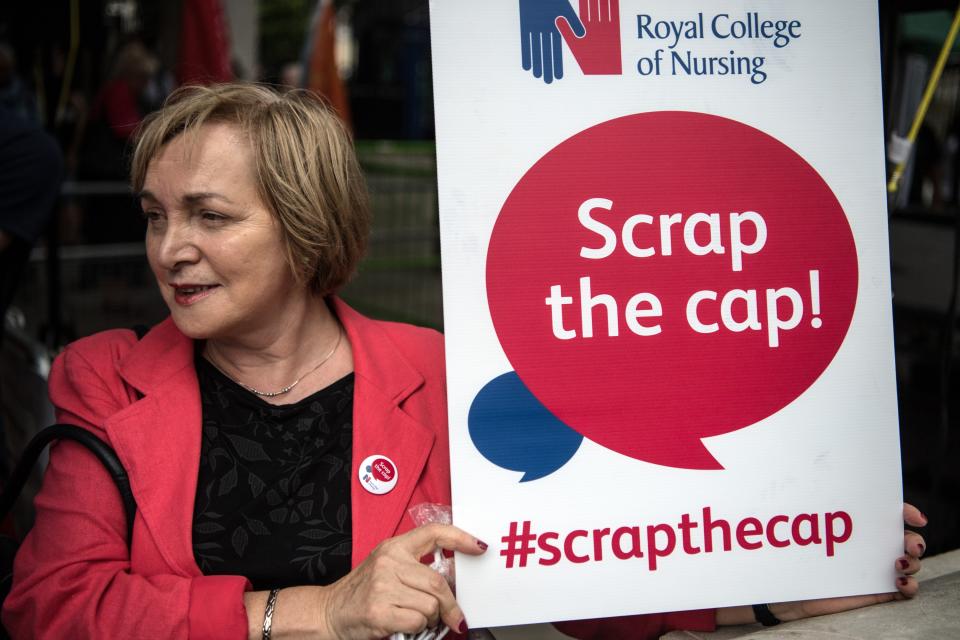Public sector pay cap expected to be lifted next year

Theresa May is planning to lift a cap on public sector pay which has seen the likes of nurses and civil service workers have rises frozen to no more than 1% since 2013.
The move is said to be just one of a number of plans being drawn up by the government in a bid to reconnect with voters and enable the Prime Minister to win the authority needed to stay another term in No 10.
According to a report in The Sun, the cap would be removed gradually over two years because of the £4 billion annual price tag attached to the process.
MORE: Revealed: How much the biggest earners make in the capital, by industry
MORE: NHS suffers mass exodus as nurses and midwives leave the profession in droves
One such plan touted by ministers could see the lowest paid and professions with the biggest retention problems – such as nursing and senior leaders across the civil service – enjoy the first increases to their salary from as early as April next year.
Pay hikes of at least the rate of inflation, currently 2.6%, will be authorised by ministers, The Sun reported, bringing a nurse’s average pay of £31,600 up by at least £820.
Public sector pay for all but the lowest earners was frozen in the financial years 2011-12 and 2012-13, before a limit on increases to an average of 1% was introduced from 2013-14 to 2015-16, and then capped at 1% again for the next four years.
Confirmation of the plans is expected later this month when the Treasury delivers its annual guidance letters to pay review bodies to calculate next year’s pay levels for five million public sector workers.
The details are likely to be outlined during Chancellor Philip Hammond’s Budget later this year.
A senior Whitehall source said: “The PM and the Chancellor think the government need to show we understand the value of people’s service, not just the price of it.
MORE: Surprise as inflation falls to 2.6% – but what does it mean for you?
“Being taken for granted for a long time is why people are getting tired with austerity.”
A Treasury source added: “Lifting the cap and how we pay for it is the biggest domestic issue for us this Autumn. It will dominate the Budget”.
In a BBC radio interview on Tuesday, transport secretary Chris Grayling refused to rule out scrapping the public sector pay cap.
He said: “We of course listen to the lessons from the general election campaign … but when it comes to these big financial decisions they are things that have to wait for the budget.”

 Yahoo Finance
Yahoo Finance 
